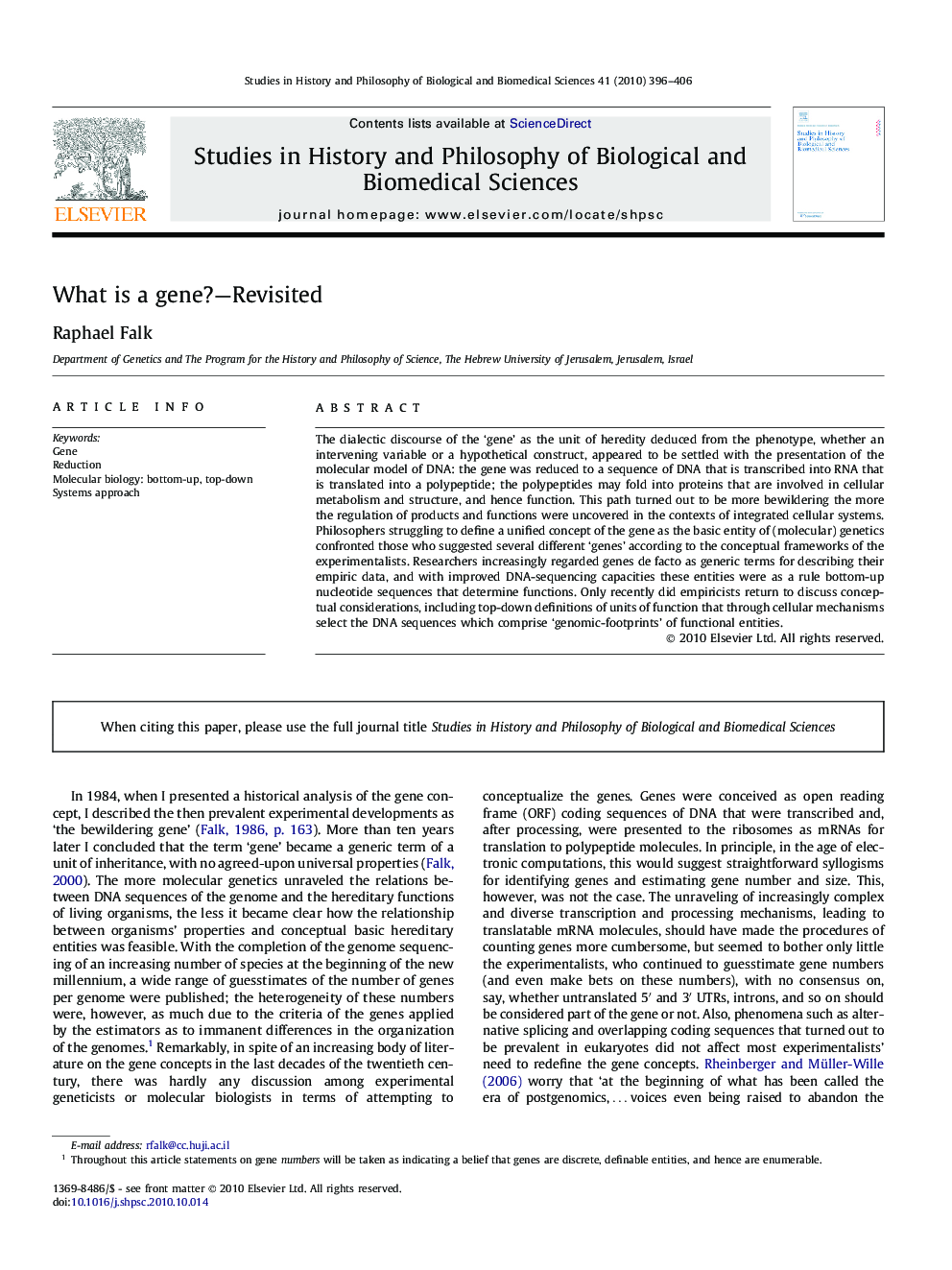| Article ID | Journal | Published Year | Pages | File Type |
|---|---|---|---|---|
| 7553316 | Studies in History and Philosophy of Science Part C: Studies in History and Philosophy of Biological and Biomedical Sciences | 2010 | 11 Pages |
Abstract
The dialectic discourse of the 'gene' as the unit of heredity deduced from the phenotype, whether an intervening variable or a hypothetical construct, appeared to be settled with the presentation of the molecular model of DNA: the gene was reduced to a sequence of DNA that is transcribed into RNA that is translated into a polypeptide; the polypeptides may fold into proteins that are involved in cellular metabolism and structure, and hence function. This path turned out to be more bewildering the more the regulation of products and functions were uncovered in the contexts of integrated cellular systems. Philosophers struggling to define a unified concept of the gene as the basic entity of (molecular) genetics confronted those who suggested several different 'genes' according to the conceptual frameworks of the experimentalists. Researchers increasingly regarded genes de facto as generic terms for describing their empiric data, and with improved DNA-sequencing capacities these entities were as a rule bottom-up nucleotide sequences that determine functions. Only recently did empiricists return to discuss conceptual considerations, including top-down definitions of units of function that through cellular mechanisms select the DNA sequences which comprise 'genomic-footprints' of functional entities.
Keywords
Related Topics
Life Sciences
Agricultural and Biological Sciences
Agricultural and Biological Sciences (General)
Authors
Raphael Falk,
